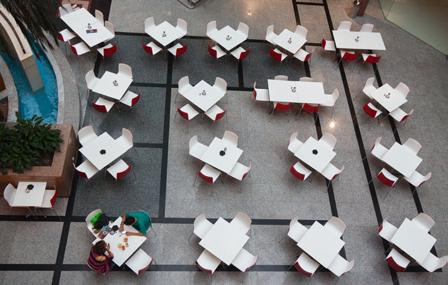
1 minute read
Amplifying the voices of children and young people in sexual violence and sexuality research.
By Ayurshi Dutt and Janelle Rabe
How can children and young people be meaningfully involved in research related to sexual violence, sexuality, gender, intimacy, and relationships?
Advertisement
Ayurshi Dutt and Janelle Rabe recently answered this significant question through their presentations at the European Society on Criminology Conference at Malaga, Spain on 24 September 2022. Funded by the Ustinov Travel Award and Arklight Travel and Research Fund, Ayurshi and Janelle presented their research as part of the “Researching Young People: Sexuality, Gender and Harm” panel, discussing opportunities and challenges in considering different methodologies to effectively involve young people.
Ayurshi, as a research assistant for a project exploring sexual and gender identities of young people in the northeast of UK, shared the methodological reflections of their research team. Ayurshi organized and co-facilitated workshops with young people (aged between 16-25) from diverse intersectional backgrounds to explore what inhibits or enables their sexuality and gender identities. These workshops
Ayurshi also highlighted the importance of including the missing voices in future related research such as young people from ethnic minority backgrounds, young people with learning disabilities, and young men. Her methodological reflections also included an exploration of difficulties around recruiting men to participate in this project. She shared how, as the workshop facilitator, she had to co-create a space for men to talk about gender and sexuality issues for the first time. Towards the end, the research team received important feedback on how co-produce a bigger project with young people.
Meanwhile, Janelle talked about her reflections using co-inquiry to engage young people in participatory action research, examining their views and meanings of sexual violence and its prevention. She emphasized the importance of sharing the power in were important in creating a space to talk about sensitive issues and also contributed to the consciousness-raising arm of the overall research by enabling a ‘space for action’ wherein young men and women made sense of their experiences and journeys (Kelly, 2003). decision-making about the methods and the topic with young people. In practice, this may be difficult since young people usually do not have frames of reference for meaningful work with adults that do not involve them in a tokenistic manner. The other panellists also promoted the importance of listening to the voices of young people in sensitive research since they often have rich insights based on their lived experiences, yet they are often not involved. The lively discussions with the audience showed a keen interest in young people’s participatory research, which is envisioned to be pursued by more postgraduate researchers in the future.
Her methodological reflections also included an exploration of difficulties around recruiting men to participate in this project.









